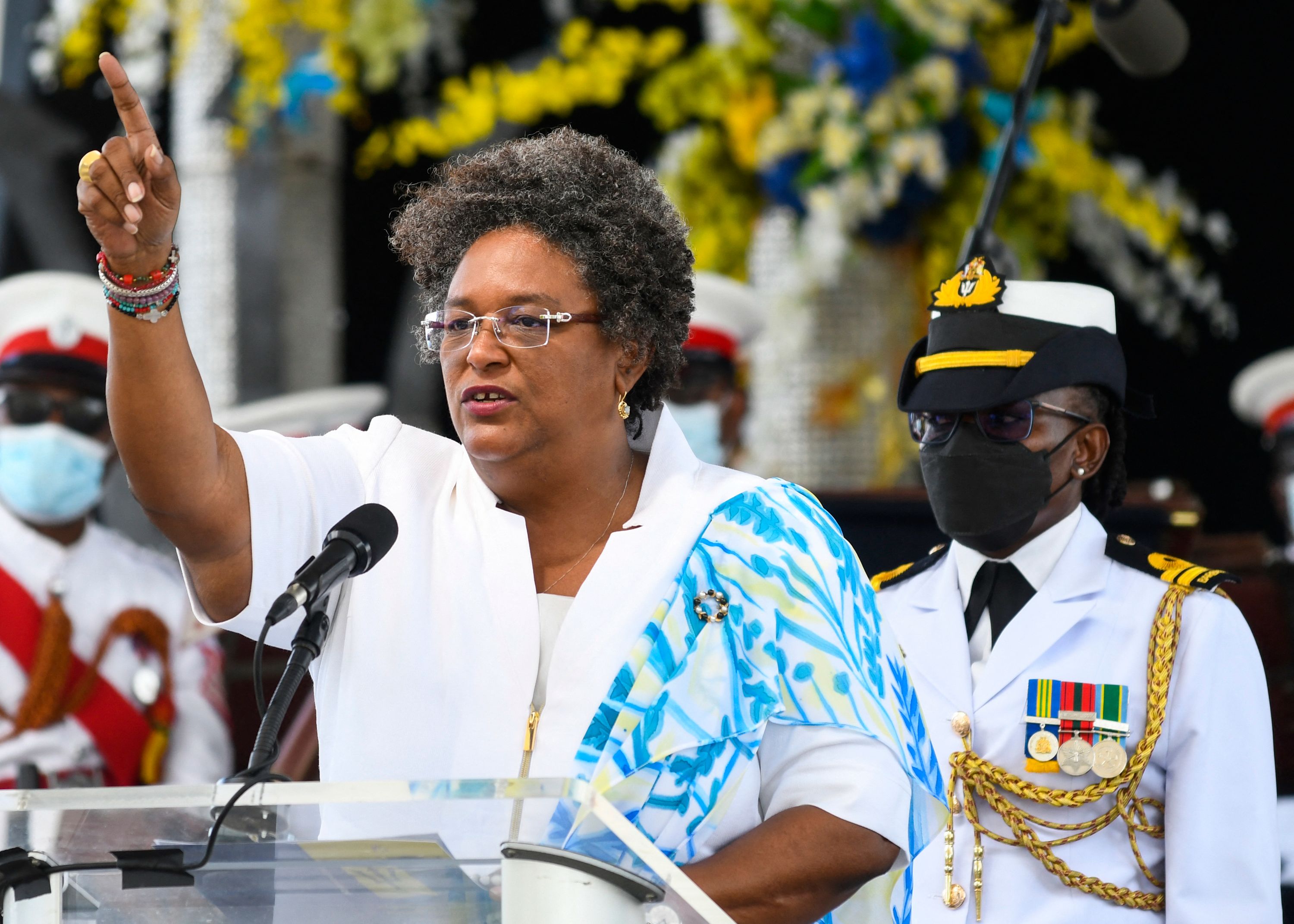Barbados to build slavery museum after cutting ties with British monarchy
Island has second largest collection of slave records after the UK.

Your support helps us to tell the story
From reproductive rights to climate change to Big Tech, The Independent is on the ground when the story is developing. Whether it's investigating the financials of Elon Musk's pro-Trump PAC or producing our latest documentary, 'The A Word', which shines a light on the American women fighting for reproductive rights, we know how important it is to parse out the facts from the messaging.
At such a critical moment in US history, we need reporters on the ground. Your donation allows us to keep sending journalists to speak to both sides of the story.
The Independent is trusted by Americans across the entire political spectrum. And unlike many other quality news outlets, we choose not to lock Americans out of our reporting and analysis with paywalls. We believe quality journalism should be available to everyone, paid for by those who can afford it.
Your support makes all the difference.Barbados is to build a transatlantic slavery museum with the largest collection of British slave records outside the UK, the island’s prime minister has announced days after the country cut ties with the monarchy to become a republic.
The facility, designed by Ghanaian-British architect Sir David Adjaye, will include a research institute dedicated to telling the story of slavery and its global impact.
It is expected to be situated at Newton Slave Burial Ground in Christ Church, just outside of the capital Bridgetown, which is the largest and earliest slave burial ground discovered in Barbados. Sir David will also design a memorial commemorating these victims.
Earlier this week, Prince Charles acknowledged the “atrocity of slavery” in speech given at the inauguration of Barbados’ new president Dame Sandra Mason, who replaced the Queen as head of state.
Announcing the plans for the museum, prime minister Mia Mottley said: “This week Barbados set out on a new part of the journey. The most important gift we can give of our people and our children at this time is that sense of confidence and understanding of who we are.”
Describing it as a “labour of love”, Ms Mottley said the project is scheduled for completion by 2025 at the latest and expected to be partially funded by entities beyond the Barbados government.
The museum will include public displays of original manuscripts, legers and photographs and other materials along with a large climate-controlled open storage section, major events spaces, with anticipated research partnerships between the Caribbean’s University of the West Indies (UWI) with US academic institutions Harvard University and the Smithsonian National Museum of African Art.
Ingrid Thompson, chief archivist at the Barbados Archives Department, said: “As we engage with these records and unearth the many stories in the current format and future state, it is believed that on the heels of republicanism a new national consciousness will emerge among our people which can only be done to the benefit of all.”
The department holds slavery records dating back to 1635 which will soon be digitised for preservation purposes.
By tapping into the heritage economy, it is hoped that this will lead to economic development, creation of expansive job opportunities for Barbadians in sectors ranging from cultural tourism to technological innovation.
Sir David said: “This project is really at the heart of why I was inspired to become an architect. That stories, structures and monuments that really define our worlds, which have been devoid of stories of people of the diaspora of Africa, need in the 21st century to emerge.”
Dr Kevin Farmer, deputy director of the Barbados Museum & Historical Society, said: “This allows us a space to pay homage to our ancestors, to acknowledge their sacrifice as part of an invidious system of forced migration that changed the world and their enduring legacy for future generations is of critical importance to the continued construction of national identity in this age of republic.”
Join our commenting forum
Join thought-provoking conversations, follow other Independent readers and see their replies
Comments